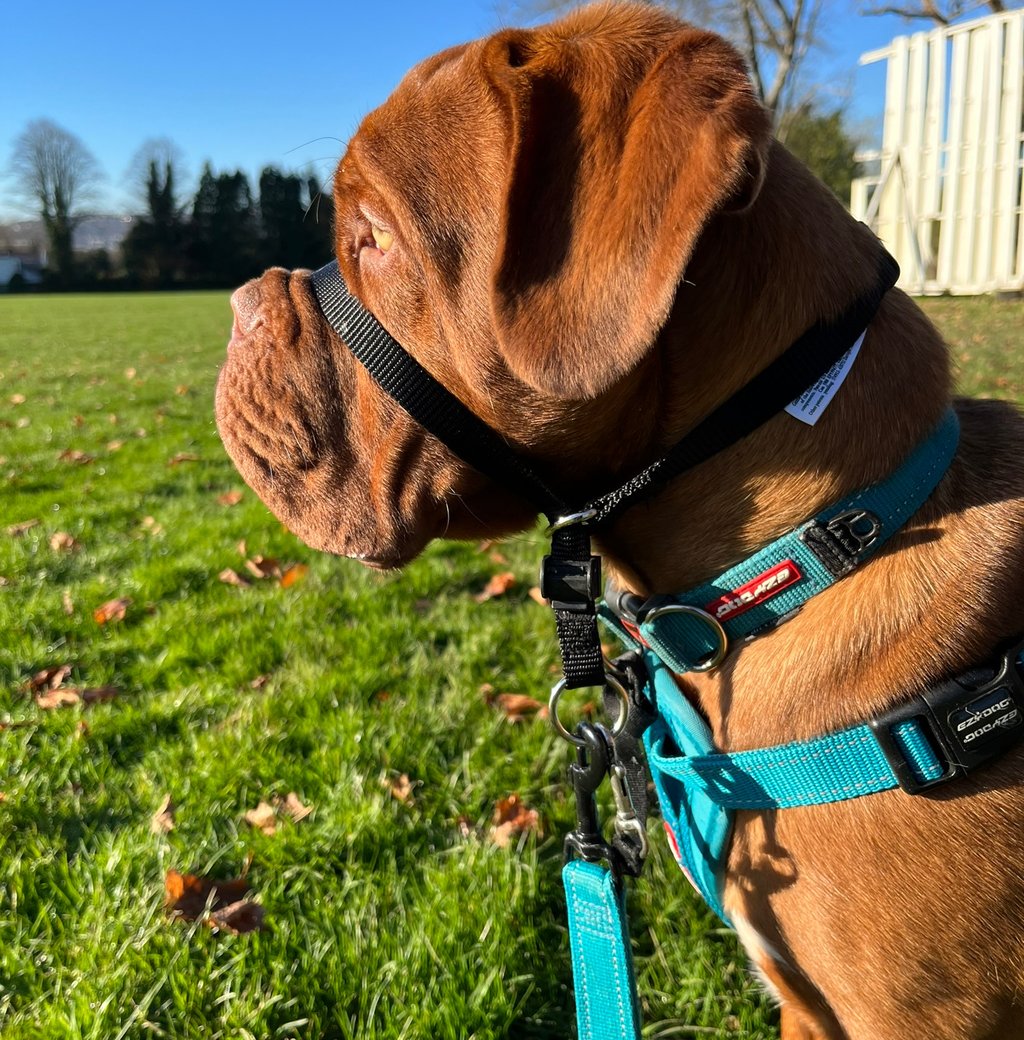Disclosure: Some ads may contain affiliate links. I may earn a commission if you make a purchase, at no extra cost to you.
5 Essential Health Tips for Large Breed Dogs in the UK
Health tips especially for large breed dogs.
PET HEALTHPET WELLBEING
Meo
3/24/20253 min read


5 Essential Health Tips for Large Breed Dogs in the UK
Large breed dogs bring immense joy and companionship, but they also require specific care to maintain their health and well-being. From joint support to proper nutrition, these gentle giants need a little extra attention to live long, happy lives. In this guide, we’ll explore five crucial health tips tailored to large breed dogs in the UK, ensuring your furry friend stays fit and healthy.
1. Prioritise Joint and Bone Health
Large breed dogs are more susceptible to joint issues like hip dysplasia, arthritis, and ligament injuries. To keep their joints strong and prevent mobility problems, consider the following:
Balanced Nutrition: Choose high-quality dog food specifically formulated for large breeds. These diets contain optimal calcium and phosphorus levels to support bone development.
Joint Supplements: Adding glucosamine, chondroitin, and omega-3 fatty acids to their diet can help maintain joint health and reduce inflammation.
Regular, Low-Impact Exercise: Swimming and gentle walks help strengthen muscles without putting excessive strain on joints.
Comfortable Sleeping Arrangements: Orthopaedic beds provide extra support for their bones and joints, reducing discomfort as they age.
2. Maintain a Healthy Weight
Obesity is a common issue in large breed dogs and can significantly impact their joints, heart, and overall longevity. Here’s how you can help your dog maintain an ideal weight:
Measure Meals Properly: Overfeeding can lead to rapid weight gain. Follow the feeding guidelines on your dog’s food packaging and consult your vet for portion recommendations.
Avoid Excessive Treats: Stick to healthy treats like carrots, apples, and lean meats in moderation.
Encourage Activity: While large dogs require exercise, avoid excessive running or high-impact activities that could strain their joints.
Regular Weigh-Ins: Check your dog’s weight monthly to ensure they remain within a healthy range.
3. Choose a Diet Tailored to Large Breeds
A well-balanced diet is essential for the long-term health of large dogs. Some key dietary considerations include:
Slow-Growth Diet for Puppies: Large breed puppies should be fed a diet that supports gradual growth to prevent bone and joint issues.
High-Quality Protein Sources: Look for foods that contain real meat as the primary ingredient, such as chicken, fish, or lamb.
Controlled Fat and Caloric Intake: Since large breeds are prone to obesity, avoid high-calorie foods with excessive fat content.
Essential Nutrients: Ensure your dog’s food contains glucosamine, chondroitin, and taurine for joint and heart health.
4. Regular Veterinary Check-Ups and Preventative Care
Large breed dogs are more susceptible to certain health conditions, including heart disease, bloat, and cancer. Scheduling regular vet check-ups is crucial to catch potential issues early.
Annual Health Screenings: Routine vet visits help monitor weight, mobility, and early signs of illness.
Vaccinations and Parasite Control: Stay up-to-date with vaccinations, flea, and worm treatments to prevent infections and parasites.
Bloat Prevention: Large, deep-chested dogs are prone to gastric torsion (bloat). To reduce the risk:
Feed smaller, more frequent meals instead of one large meal.
Use a slow feeder bowl to prevent rapid eating.
Avoid vigorous exercise right before or after meals.
5. Provide Proper Training and Mental Stimulation
Large breeds need mental as well as physical exercise to prevent boredom and destructive behaviour. Training and stimulation help keep their minds sharp and their behaviour well-balanced.
Obedience Training: Large dogs need to understand commands like “sit,” “stay,” and “heel” to ensure they are manageable in public.
Interactive Toys: Puzzle toys, treat-dispensing balls, and sniffing games help keep their minds engaged.
Socialisation: Expose your dog to different environments, people, and other animals from an early age to encourage confidence and good behaviour.
Rotating Toys and Activities: Keep your dog interested by switching up their toys and daily activities.
Final Thoughts
Caring for a large breed dog comes with its unique set of challenges, but with the right knowledge and proactive approach, you can help your companion thrive. By focusing on joint health, weight management, tailored nutrition, regular veterinary care, and mental stimulation, you’re giving your dog the best chance at a long, healthy, and happy life. Remember, every dog is different—always consult your vet to create a care plan that suits your dog’s specific needs. Your commitment and love go a long way in keeping your gentle giant in top form.
Disclaimer
This blog is for informational purposes only and is not a substitute for professional veterinary advice. If you suspect your dog has GDV or any medical emergency, contact a licensed veterinarian immediately.
©Meo's World
Meo's world
<--Awin verification 001-->
Bark
Fetch
meosworld@yahoo.com
© Meo's World 2025. All rights reserved.


